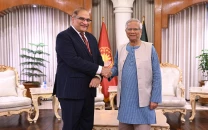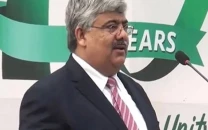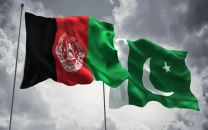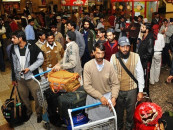Healthcare system: Integrated healthcare plan proposed to ensure ‘health for all’
Experts underscore the need to reconstruct the health system.

Health experts have called on the government to prioritise the health sector on its political agenda with the strategy to attain “health for all”. The experts discussed and explored the vision of a new healthcare system for the country at a seminar on “National Healthcare System for Pakistan” organised by the Sustainable Development Policy Institute (SDPI) on Monday.
The participants briefed about a new national healthcare system comprising of an autonomous body, population-based distribution of medical facilities and a resource generation plan which will be able to accumulate Rs324 billion annually.
Chairing the seminar, Hearfile President Dr Sania Nishtar said that Pakistan’s healthcare could perform a lot better with the provision of sufficient funding, transparency and appropriate use of resources, adding that there was a strong need for reconstruction of the health system through innovative approaches.
Speaking on the occasion, Punjab Institute of Cardiology Postgraduate Resident Dr Muhammad Saleem shared the details of the proposed healthcare system, adding that the existing system has failed to cater to the needs of people. He claimed that the current healthcare system suffered from poor governance, inadequacy, inaccessibility, inequality and lack of funding.
“We have lost more than 4.8 million children during the past ten years. Pakistan has a lower life expectancy compared to the world excluding a few African and Asian countries,” he remarked.
He further said that the population-based distribution of facilities will ensure provision of healthcare to everyone, while it will also address the problem of rural-urban disparities and other barriers of healthcare delivery. A comprehensive health unit will also be established for each segment of the population.
During the seminar, Ahmad presented the groundbreaking resource generation plan for the proposed system. He said the plan will involve every citizen to contribute Rs5 per day, while the remaining funds will be supplied by the federal and provincial governments, charities, foreign aid, income support programmes and payment on service usage.
World Health Organization Pakistan Tuberculosis Control Programme Officer, Dr Ghulam Nabi Kazi, said that the country possesses modern healthcare facilities; however, there is a dire need to create a centralised data system to ensure provision of healthcare facilities to the people.
Published in The Express Tribune, August 9th, 2011.



















COMMENTS
Comments are moderated and generally will be posted if they are on-topic and not abusive.
For more information, please see our Comments FAQ